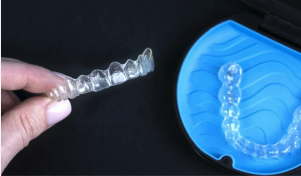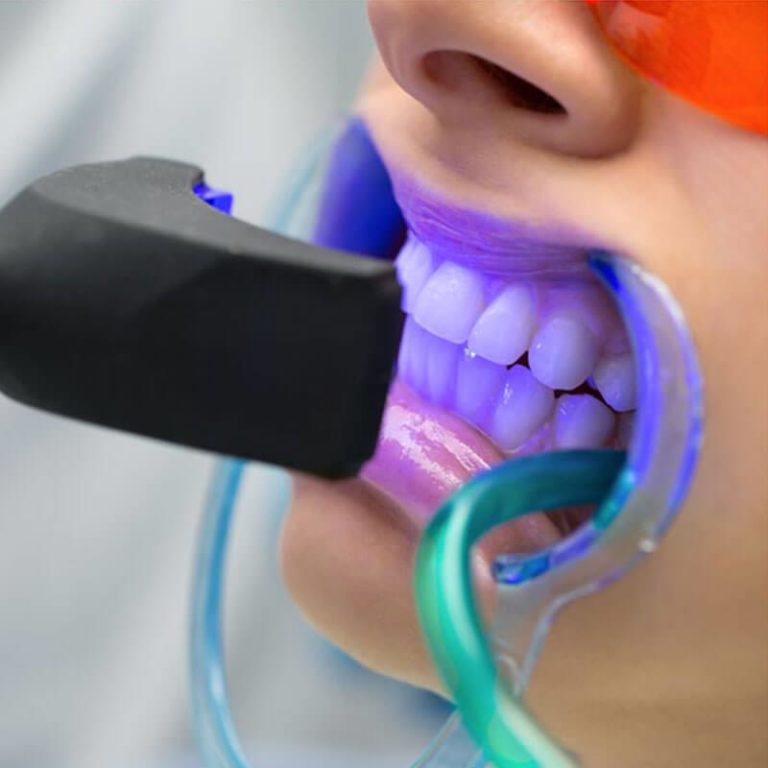Have you ever considered whitening your teeth? It’s a popular procedure, with many people opting for professional whitening services. However, there are some dangers to unregulated teeth whitening that you should be aware of before making a decision. In this post, we’ll discuss the risks associated with DIY or unprofessional teeth whitening and how to avoid them. Stay safe and get the white smile you desire by following our advice!
By law, only qualified dentists, dental hygienists, dental therapists and clinical dental technicians working under instruction from a dentist, can carry out tooth whitening. Anyone else that offers the service without the requisite qualifications is breaking the law while also exposing clients to significantly increased risk.
What Are The Risks?
It’s crucial that before any tooth whitening procedure is carried out a full assessment is carried out on the clients’ teeth. The reason for this is that if there is any pre-existing gum inflammation, tooth decay or any other dental condition then the whitening process can actually exacerbate the problem.
What’s more, when someone is illegally whitening teeth, the products they use will be unregulated and will have been acquired unlawfully. This means that the chemistry and concentration of active ingredients may be different, higher or lower than the safe, regulated products professionals have access to.
How Have People Gotten Away With It?
It’s all down to wording. Since, in the EU, products that are classed as cosmetics can be purchased by anyone, people illegally practising tooth whitening have been able to access whitening products. It is simply a loophole that people have been taking advantage of for too long.
However, the High Court in the UK has officially deemed tooth whitening as a practice of dentistry and The Dentists Act of 1984 makes it illegal to practice any form of dentistry by anyone other than a qualified professional.
What Risks Does Teeth Whitening Have?
Teeth whitening is a popular cosmetic procedure, but it’s important to be aware of the potential risks before you undergo treatment. One of the most common dangers of teeth whitening is tooth sensitivity. This can occur when the bleaching agents come into contact with the nerves in your teeth, causing them to become irritated. In some cases, this sensitivity can be painful and last for several days. In rare instances, it may even lead to permanent nerve damage. Another risk of teeth whitening is gum irritation.
The chemicals used in bleaching agents can cause the gums to become inflamed and sore. In some cases, this irritation can last for several days or weeks. If you experience any pain or discomfort during teeth whitening, be sure to contact your dentist right away.
Achieve Whiter, Brighter Teeth With Ollie & Darsh
At Ollie & Darsh we offer three distinct but equally effective whitening treatments, perfect for any eligible client looking to achieve their brightest and best smile. And you can rest assured that at Ollie & Darsh we take every precaution to ensure that you and your teeth are in perfect condition before we even consider carrying out a procedure.
We offer a free consultation for every client so we can discuss your needs and any concerns you may have, and we always follow a thorough examination process before deciding on the best treatment for you.
Our team is qualified, registered and highly experienced so you are in safe, expert hands from beginning to end! If you’re interested in teeth whitening make sure you get in touch with our friendly team to book you consultation with us.
Plus, if you’re wondering about what foods to eat after your whitening treatment to avoid staining your teeth then look no further. We’ve created a ‘Teeth Whitening Diet‘ top sheet for clients who have just received a whitening treatment. The sheet will tell you which foods and drinks you should avoid, as well as those that you can eat for the first 48 hours after treatment.

